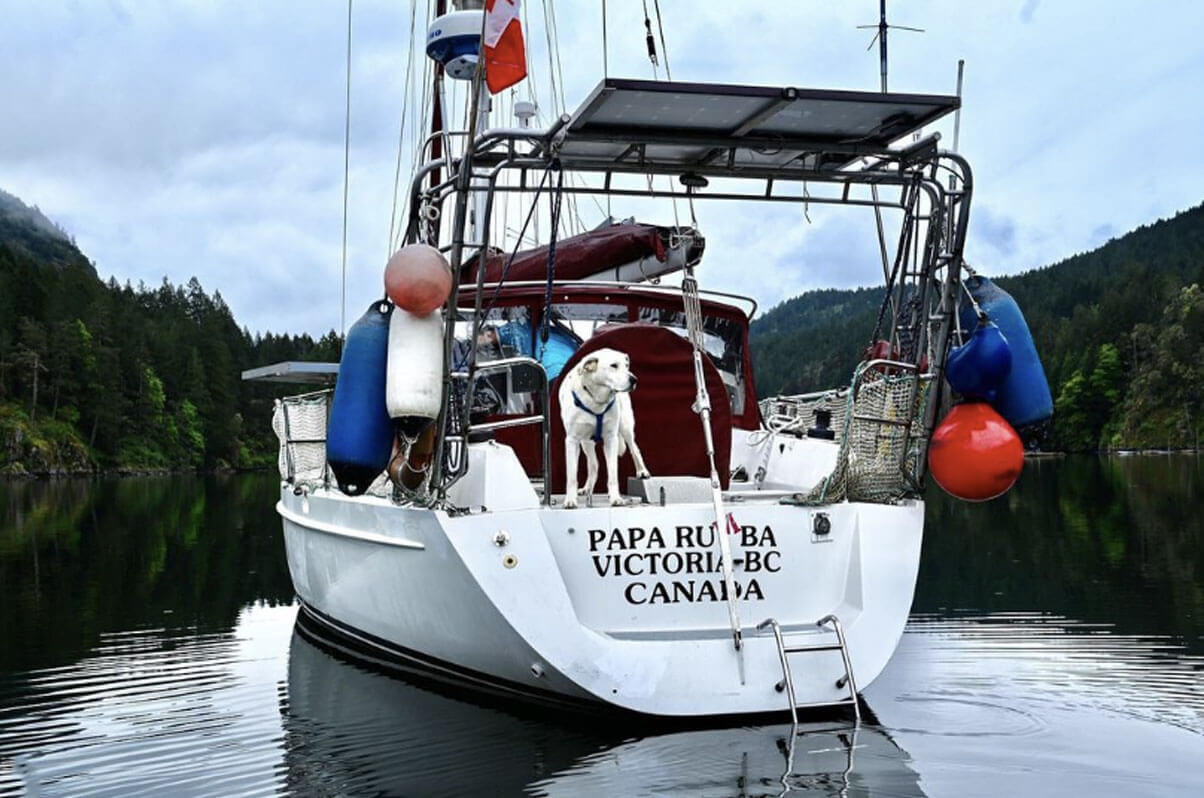
Although we do not name every inanimate object that we own, the tradition of giving a boat a name is a long standing one that goes back to ancient times. Many people believe that boats themselves have souls, so maybe that is part of it, but as our beliefs in spirituality and superstition have changed over the ages, the tradition of naming boats has pretty much stayed the same. Today, with so many more pleasure crafts floating on the water, naming a boat also has a practical purpose.
What exactly is the purpose of naming a boat, why does it matter, and how do you go about naming or renaming a boat? These are questions we have asked and researched recently as we have started the process of renaming our beautiful boat.
In modern times, the main purpose of naming a boat is to have something identifiable to call on the radio. Calling the color of make of your boat in a land where there could be 12 white boats with a blue stripe made by Hunter just isn’t sufficient. Instead, we have names that we can call on the radio that are unique to our boat- well, as long as the boat is registered.
In Canada there are two forms of boat identification. There are registered boats and licensed boats. Boats are supposed to have one system or the other attached to them. Both systems assign the boat a number, but the registered system also has a name assigned that is unique to that boat. The registration system is also searchable and recognizable internationally while licensing is Canadian specific. Because the licensing registry only keeps track of boat numbers and not names, there can be numerous licensed boats with the same name or no name at all. A licensed boat doesn’t even necessarily need name, but it does legally need to display its license number. The registration registry on the other hand keeps track of both boat number and name. Registered boats must display their legally registered name and port of call on their boat.
Kind of confusing right? It basically boils down to the fact that if you plan to take your boat outside of the country it makes more sense for it to be registered than licensed. If you just plan to stick to Canadian waters then licensing makes more sense and you might not even care a ton about actually giving your boat a name, especially if it’s something small.
But if you do decide to register your boat, then there is the question of what name to give it. Every registered boat has a unique name. Sometimes the only thing that makes it unique is the addition of a number to the end of the name, but sometimes you are lucky enough to pick a name that no one else has thought of. Either way you need to apply through the government registry to either change or give your boat a new name. There are also a few things you can’t name your boat.
According to the Government of Canada website, your boat name:
- must be unique, even when said aloud
- can’t use a registered trademark
- can’t be a prohibited mark
- can’t be confused with a distress signal
- can’t include vessel acronyms, for example, “SV” for sailing vessel, or “FV” for fishing vessel
- can include an article such as “the”, “le”, “la”, “l’”, though we don’t consider this when approving a vessel name (for example, “THE HAPPY DOLPHIN” is the same as “HAPPY DOLPHIN”)
You must provide an authorization letter, if you are using the name of:
- a famous Canadian person
- a city or town in Canada
So how exactly do you decide on a name? What makes a good boat name? Generally, something that is easy to call over the radio is the #1 rule. You may have to call your boat name phonetically at some points and doing that with a 20 letter long name is a lot more difficult than a 5 letter long name. Also, something that is easy to pronounce when you call it so you don’t have to spell it out phonetically very often. Next, picking a name that either has personal meaning to you or the activities the boat is made for is usually a good rule of thumb. This is not necessary, but it’s an easier conversation to tell people why you named your boat something water related than explaining to them that you named it after a random valley in Tibet with no water.
Once you have decided on a name you like, you can search the online registry to find out if your name has already been taken. If it has, you can decide whether you want to choose a different name or add a number onto the end of the name to differentiate it. When you have come up with something unique, you can apply for the name through the government website. This costs a little bit of money. On the application form you can also include three name possibilities in case your #1 choice still isn’t available for some reason.
When you get the okay back that your name is available and has been changed, you can then go about the process of changing the decals on your boat and going through a proper renaming ceremony for your boat, but I will leave that process up to your own research.
I hope this helped if you are thinking about changing the name of your boat. Many people claim that renaming a boat Is bad luck, but throughout history people have renamed boats on a regular basis with no problem, albeit usually while following strict traditions.
If you are interested in seeing the renaming process unfold first hand, we will be renaming our boat fairly soon over on your Youtube channel Wayward Life Sailing and we would love to have you along!
